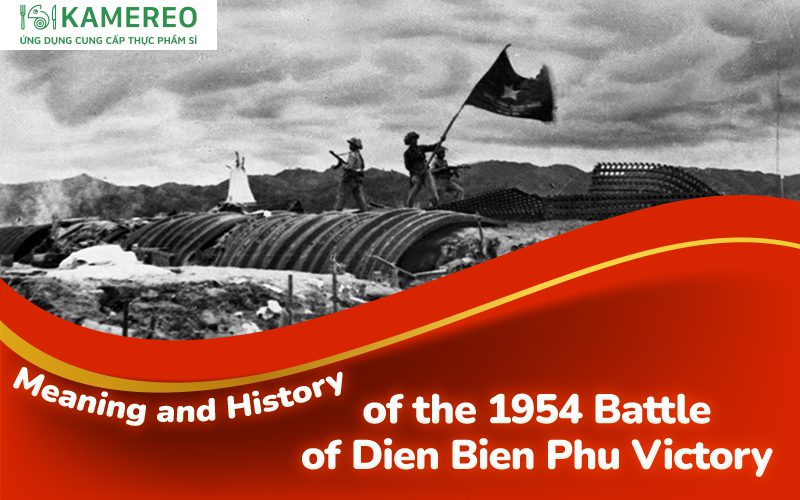May 7th is deeply etched in the history of the Vietnamese nation as a glorious milestone, marking the Dien Bien Phu Victory in 1954. This event not only ended French colonial rule but also affirmed the indomitable strength and the will for independence of our people. To better understand the immense historical significance of this victory, please refer to the detailed article below by Kamereo!
What is May 7th?
May 7th, 1954, is a crucial historical landmark for Vietnam. It is the day of the Dien Bien Phu victory, where the Vietnamese army and people defeated the French army, a victory of decisive significance in the resistance war against colonialism. The red flag with a gold star flew atop the bunker of General De Castries, symbolizing the strength and unwavering will of the nation.
The Dien Bien Phu Victory was a military triumph and a spiritual victory, demonstrating the courage and iron will of the Vietnamese army and people. This event forced France to sign the Geneva Accords, recognizing the sovereignty of Vietnam, Laos, and Cambodia (the three Indochinese countries). May 7th became a sacred anniversary, a reminder of the great sacrifices and contributions made for the independence and freedom of the country.
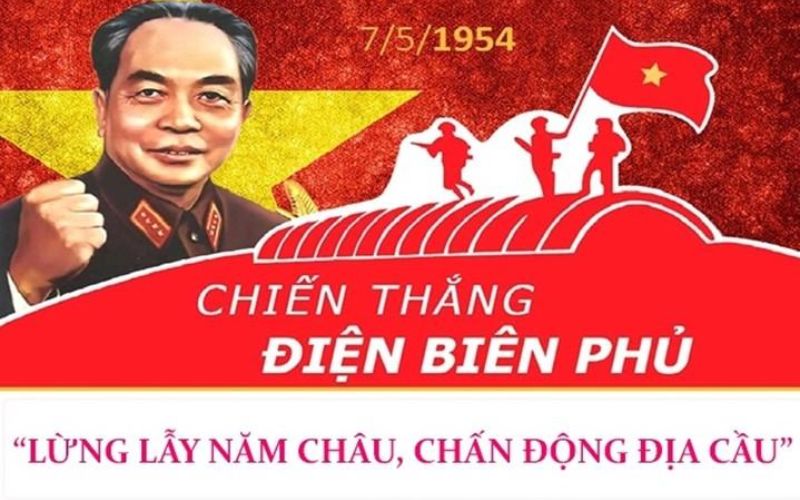
Historical Significance of the Dien Bien Phu Victory Day
The resounding Dien Bien Phu Victory in 1954 is a testament to the strength of unity, the indomitable will, and the strategic intelligence of the nation, while also opening up profound meanings. Specifically:
Affirming the Correctness of the Resistance Line
The Dien Bien Phu Victory in 1954 affirmed the accuracy of the resistance line set forth by the Communist Party of Vietnam. This victory strengthened the people’s belief in the Party’s leadership and deeply aroused national pride. At the same time, it served as a powerful motivation for the entire nation to unite and resolutely protect the newly gained independence and freedom.
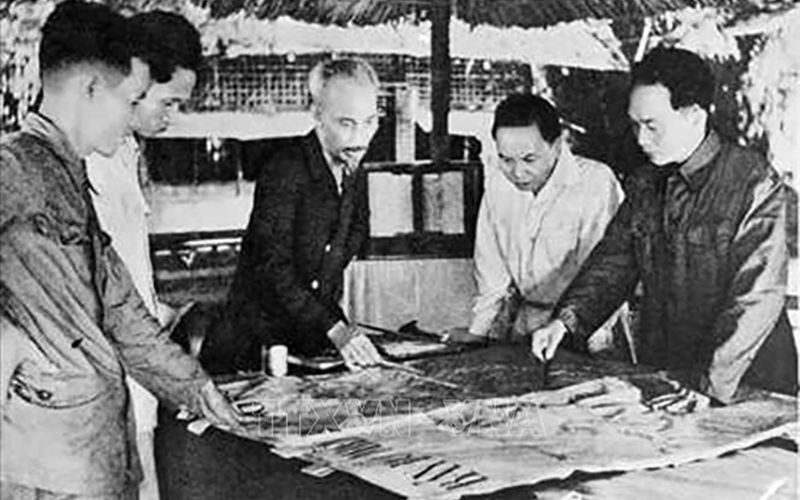
Opening a New Chapter in the History of the Vietnamese Revolution
The Dien Bien Phu event on May 7th, 1954, marked a significant turning point, ushering in a new phase for the Vietnamese revolution. Following this victory, the Vietnamese people resolutely entered the resistance war against the United States to save the nation. The determination to liberate the South and unify the country became a strategic goal, shaping the development path of the nation.
Accelerating the Collapse of Old Colonialism
The Dien Bien Phu Victory had a profound impact on the colonial system worldwide. The defeat of the French colonialists in Vietnam dealt a heavy blow to old colonialism, accelerating the weakening and collapse of empires. This event was a historical turning point, marking the end of French colonialism in Indochina and a shift in the global landscape.
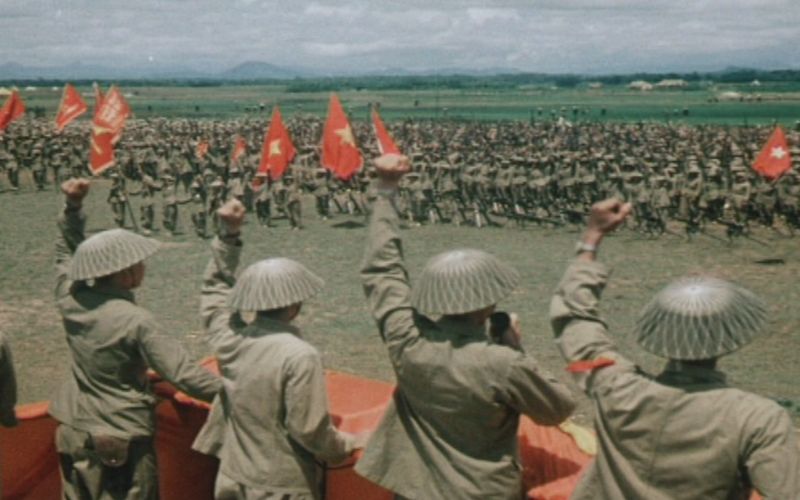
Encouraging Nations to Struggle for Independence
The influence of the Dien Bien Phu Victory spread strongly, becoming a great source of encouragement for the national liberation movement globally, especially in Africa and Latin America. This victory powerfully demonstrated that oppressed nations, if they have a steadfast will and determination to gain independence and freedom, are fully capable of defeating any aggressor.
Young heroes in the Dien Bien Phu Victory
The resounding Dien Bien Phu Victory was the crystallization of Vietnam’s will and strength, deeply imprinted with the sacrifices of many outstanding sons and daughters. Among them, young heroes with profound patriotism contributed to this historical miracle through courageous actions, “determined to die for the Fatherland to live.”
Hero Tô Vĩnh Diện
Born in 1924 in Thanh Hoa, Tô Vĩnh Diện joined the revolution in 1946, becoming a local militia commander. In 1949, he joined the army, always setting an example and achieving many feats. In May 1953, he became the leader of the 37mm anti-aircraft artillery platoon, belonging to Company 827, participating in the Dien Bien Phu Campaign, overcoming all hardships to bring artillery into safe positions.
During the campaign, while pulling the artillery out according to the new plan, the tow rope broke on a dangerous mountain slope. Tô Vĩnh Diện resolutely sacrificed himself to wedge the artillery, protecting the precious 37mm gun. His heroic sacrifice became an immortal symbol, and he was posthumously awarded the First-class Military Exploit Order and the title of Hero of the People’s Armed Forces in 1956, forever remembered in the nation’s history.
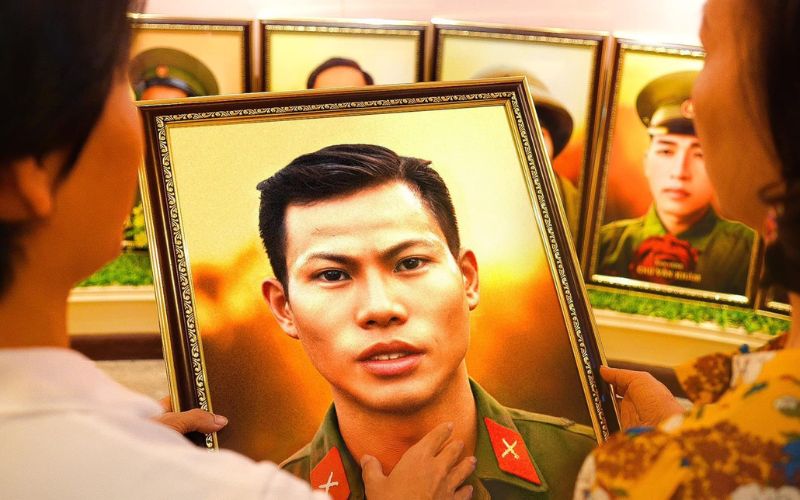
Hero Trần Can
Trần Can was born in 1931 in Nghe An. With a steadfast will, he applied for enlistment four times before being accepted into Regiment 209, Division 312. During the Northwest Campaign in 1952, he bravely led his platoon to break open a gate, destroying three gun emplacements and capturing 22 enemy soldiers alive. Afterward, he continued to participate in the Upper Laos Campaign, contributing to the liberation of Sam Neua and expanding the revolutionary base.
During the Dien Bien Phu Campaign, Trần Can commanded a platoon that deeply penetrated the Him Lam stronghold, planting the first “Determined to Fight, Determined to Win” flag. He continued to lead the charge to capture Hill 507, annihilating the 11th Legion Company. Despite being severely wounded and sacrificing himself on May 7th, 1954, his glorious feats were honored with the title of Hero of the People’s Armed Forces.
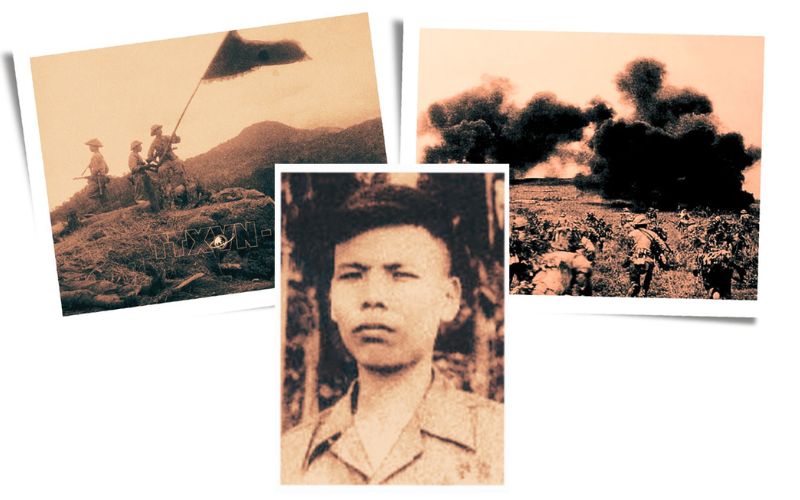
Hero Bế Văn Đàn
Born in 1931, Bế Văn Đàn, an ethnic Tày person from Cao Bang, grew up in a family with a rich revolutionary tradition. In 1948, he volunteered to join the army and participated in many major campaigns against the French. During the 1953-1954 Winter-Spring Campaign, at the battle of Muong Pon, he bravely served as a liaison, accurately conveying orders amidst gunfire, while also staying behind to fight resolutely alongside his comrades.
When the heavy machine gun had no place to be positioned, Bế Văn Đàn bravely used his own body as a gun mount for his comrades to fire back at the enemy. He was wounded many times but resolutely held onto the gun until his sacrifice. His heroic sacrifice became an indomitable symbol in the Vietnam People’s Army. He was posthumously awarded the title of Hero of the People’s Armed Forces and the Second-class Military Service Order.
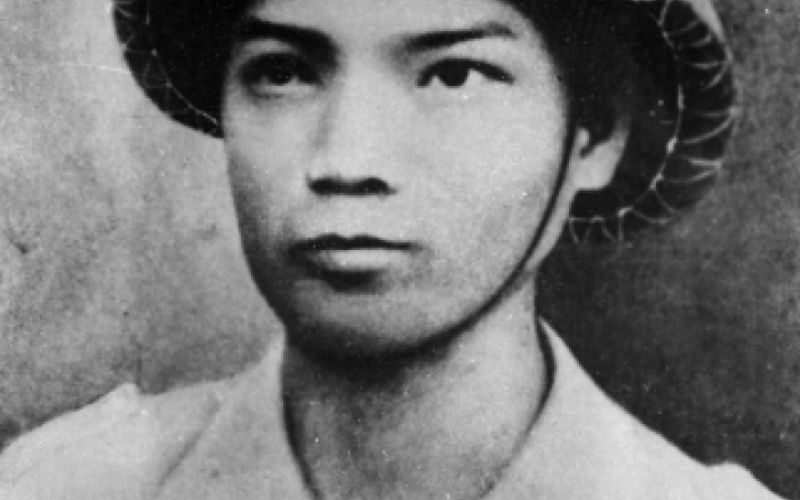
World Historical Events on May 7th
On May 7th, the world witnessed many important historical milestones, including:
- 1875: The Russian Empire and the Empire of Japan signed the Treaty of Saint Petersburg. According to this treaty, Russia officially acquired Sakhalin Island, while Japan received sovereignty over the Kuril Islands.
- 1915: The British passenger ship Lusitania was attacked and sunk without any warning by a German Navy submarine. The incident occurred in the waters south of Ireland, causing the deaths of 1,198 people, including 128 American citizens.
- 1945: In Reims, German General Alfred Jodl signed the instrument of unconditional surrender. This event marked the official end of Nazi Germany’s participation in World War II, and the surrender terms took effect immediately the following day.
- 1946: Tokyo Telecommunications Engineering Corporation was established, later renamed Sony, becoming one of the world’s leading technology corporations.
- 1998: Mercedes-Benz acquired Chrysler for a total value of US$40 billion, forming the DaimlerChrysler corporation. This was considered one of the largest mergers in the history of the global automotive industry.
- 2000: Vladimir Putin officially took office as President of the Russian Federation. This event marked the beginning of a new era in Russia’s political history.

Frequently Asked Questions
What significant historical event took place in Vietnam on May 7th, 1954?
On May 7th, 1954, the historic Dien Bien Phu Victory took place in Vietnam, where our army and people defeated the French colonialists, ending the arduous 9-year resistance war. This event marked a crucial turning point, ushering in a new era for the Vietnamese revolution and the national liberation movement.
Where did the Dien Bien Phu Victory take place?
The Dien Bien Phu Victory took place in the Muong Thanh basin, belonging to Dien Bien Phu city, Dien Bien province, in the Northwest region of Vietnam. At that time, this area was part of Dien Bien district, Lai Chau province. The Muong Thanh basin is a large valley surrounded by high mountain ranges, creating a hiểm trở terrain of significant strategic value during the resistance war against the French colonialists.
Conclusion
In summary, through this article, you must have the answer to the question of what is May 7th. May 7th, 1954, marks the historical Dien Bien Phu Victory, a victory of great significance, affirming the strength of unity and the will for independence of the Vietnamese nation. This is an unforgettable event, always reminding us of the value of peace and freedom. Don’t forget to visit the Festival section to explore more holidays and major events!



